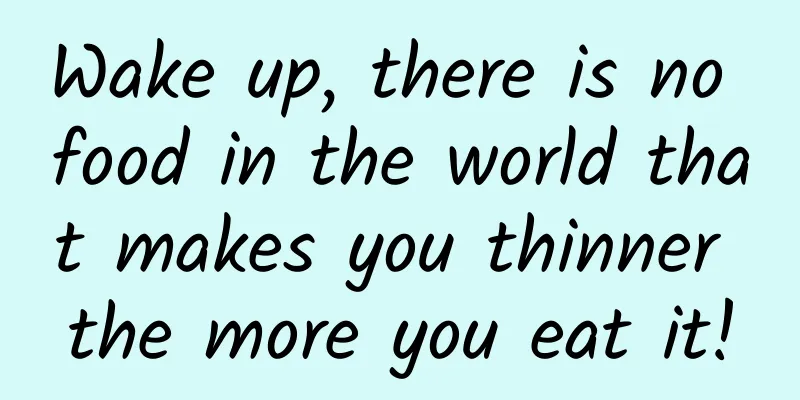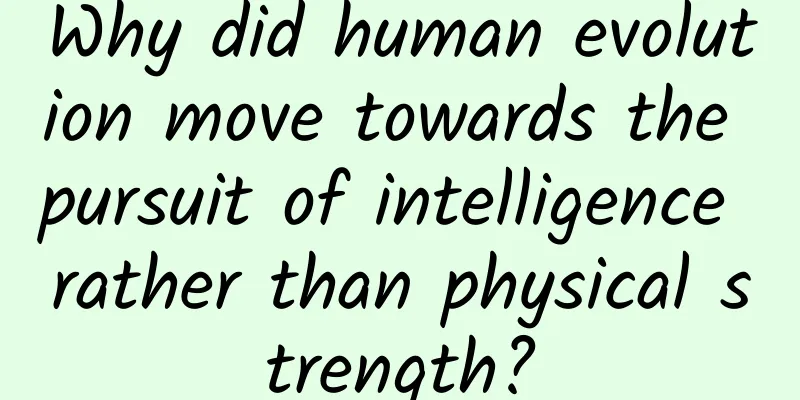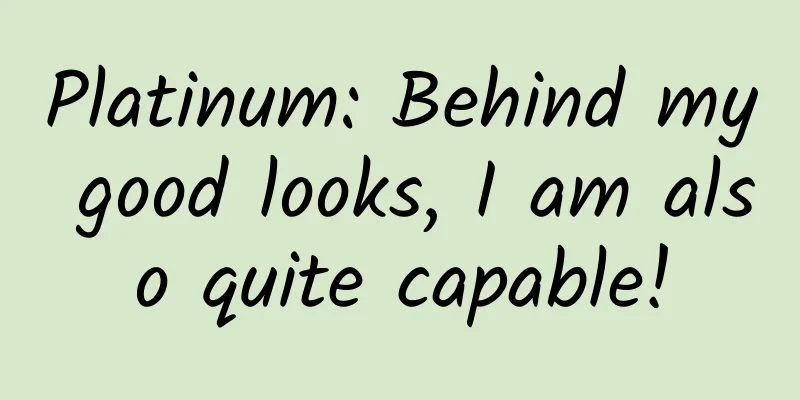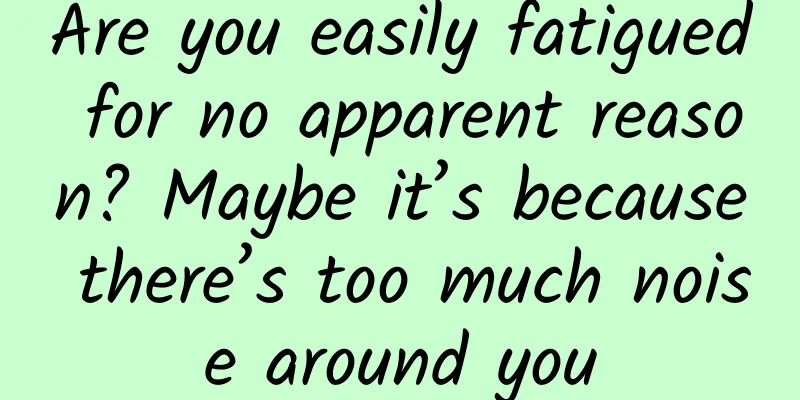Wake up, there is no food in the world that makes you thinner the more you eat it!

|
Have you heard of "negative calorie foods"? A popular rumor says that some foods require more energy to digest than the energy provided by the food itself, so eating them will consume less energy and make you lose weight easily. Is this true? If you ask a scientifically rigorous nutrition expert, his answer will be something like this: There is no scientific research to prove that "negative calorie foods" exist. If you want to control your weight, you should eat less, exercise more, and eat a balanced diet. There is nothing wrong with this answer, but it is a bit boring. However, some people will choose a completely new way of answering the question. A research team from the University of Alabama, Tuscaloosa said: Want to know whether "negative calorie food" is true or not? Then feed lizards celery. Lizards not only eat celery, but they can only eat celery... | Tuchong Creative Why feed celery to lizards? In March 2019, this group of people published their paper on the preprint website biorxiv [1]. Their idea was this: since there is a lack of research evidence for "negative calorie foods", let's do an experiment ourselves. However, the style of this experiment is indeed a bit confusing. Find 9 lizards, feed them only celery, wait for them to poop, give them an enema, and then burn all the poop... What is going on? First of all, I chose celery because it is a representative of "negative calorie food". Celery is rich in water and fiber, and the calories it provides are indeed very low. If you strictly eat only celery and record all the energy and metabolic changes of food and excrement, you should be able to know whether the "negative calorie" statement is true or false. Next, we need to find someone to eat the celery. According to the researchers, the bearded dragon (Pogona vitticeps) was chosen to be the feeding target because of its docile nature, omnivorous nature, and digestive tract similar to that of omnivorous mammals. Bearded dragon, a very poor lizard | Wikipedia/Frank C. Müller, Baden-Baden What happened to the lizard? Why is the bearded dragon "unfortunate"? Before the experiment began, it had to go through a difficult time: first, it was pitifully fasted for 10 days, so that the food it had eaten before was digested and the excretions it had to excrete to ensure that there was no interference from residual food. However, this was not enough. In order to remove the residual excrement, enema was the most thorough method... After these experimental preparations, the bearded dragon lizards with their digestive tracts hollowed out were placed in a small, closed metabolic chamber to monitor their metabolic rates. Next, the poor subjects were finally able to eat: celery equivalent to 5% of the lizard's body weight. The researchers said that the bearded dragon is docile and can eat all the celery, making it very suitable for this experiment. Emm, isn't it because it has been hungry for ten days and has no strength to resist? During the experiment, the brave researchers became the best poop scoopers of the year: they eagerly looked forward to every poop and pee of the bearded dragon (note: unlike human urine, the lizard's "urine" is white uric acid excretion), carefully collected the excrement, dried it and weighed it, and then burned it all in a calorimeter to calculate the total energy of the excrement. By the way, in order to ensure complete collection, the researchers gave the bearded dragon another enema before the end of the experiment... Original image | Juan Carlos Dominguez M What are the results? After some measurements, the research team calculated the energy flow of the food: the bearded dragon ate celery with a total energy of about 7.83 kilojoules, of which an average of 29% and 14% of the energy was excreted in the form of feces and feces, respectively, and 33% of the energy was spent on digestion and assimilation. This leaves 24% of the energy in celery. Celery is indeed low in calories, but it is still not "negative calories." In addition, the authors of the paper also pointed out a problem that makes people who want to lose weight even more sad: after all, humans are different from bearded dragons. When digesting food, our metabolism increases less. In other words, the proportion of energy consumed by humans through digesting celery should be smaller, and it is even more impossible to achieve "negative calories". However, eating fruits and vegetables is still good Although no negative calorie foods have been found, low-fat, high-fiber foods such as fruits and vegetables are indeed very helpful in controlling energy intake. After all, although they provide a little energy, these calories cannot meet the body's daily energy consumption. From this perspective, they are still quite healthy. Ultimately, weight control depends on a balanced diet rather than a specific type of food. For the sake of your poor bearded dragon, stop worrying about "negative calorie foods." References [1]https://www.biorxiv.org/content/10.1101/586958v1.full [2]https://www.popsci.com/negative-calorie-foods-lizard Author: The miserable thallium baby Edit: Window knocking rain This article comes from Guokr and may not be reproduced without permission. If necessary, please contact sns@guokr.com |
<<: Lao Ke | The information about "monkeypox" you want to know is here
>>: Linnaeus, the father of biology, was a naming maniac and also a dragon slayer.
Recommend
China Passenger Car Association: China Automobile Retention Value Report in May 2021
On June 1, 2021, the China Automobile Dealers Ass...
Selectively ignored copyright may determine the life and death of live streaming platforms
During the Rio Olympics held in August, a large n...
World's first! Surgical robot autonomously performs laparoscopic surgery in pigs
Written by: XT Editor: Kou Jianchao Layout: Li Xu...
600 stores’ private live broadcasts summarized these 6 live broadcast methods!
With the popularity of the live streaming industr...
There are various optical illusions. What is the point of studying them?
We need to study not only human illusions, but al...
Ximalaya's "423 Listening Festival" promotion strategy
Friends who don’t pay much attention to the knowl...
Analysis of user marketing activity system!
There are many introductions to marketing activit...
Tips for editing and producing popular short videos!
With the rise of short videos, everyone with a mo...
Top 1000 Mobile Apps Ranking in November 2016
The must-read monthly AppTOP1000 list has been of...
What is the relationship between products, channels and shopping guide brands?
All customers will be involved in three major iss...
How to build your first community from 0 to 1?
Five steps to build your first community Like-min...
What can become popular on Tik Tok?
1. Grasp the best time for hot events Friends who...
Hunter Camp Community·Multiple VIP Course Collection
The course comes from a collection of multiple tu...
Is it normal to have a hot head? Unexpectedly, a healthy brain temperature can reach 40℃ everyday!
When people are excited, they do some irrational ...
Uncover the secrets of user growth from Weibo product details
The motivation for writing this article was the d...









